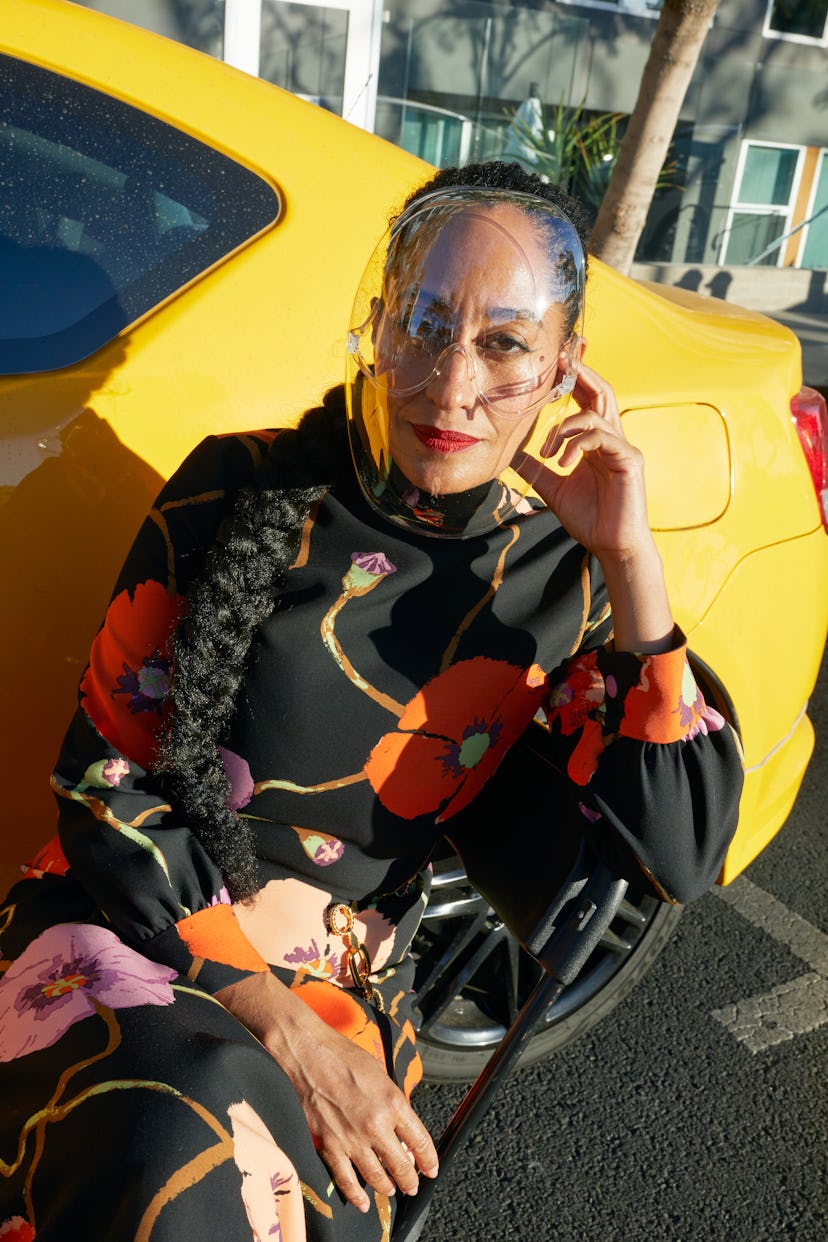For Tracee Ellis Ross, The High Note Was a Chance to Face Her Biggest Fear

It's difficult to imagine Tracee Ellis Ross having any reservations when it comes to performing. The 48-year-old actress is, after all, the offspring of one of the greatest talents of our time, Diana Ross. But for her role in The High Note, which centers a superstar singer whose career is coming to a standstill, Ross says she had to conquer a lifelong fear of singing on-screen. In her eloquent way, she touches on getting to know her character, Grace Davis, and embracing this stage of her life for W’s annual Best Performances issue.
It must've been something of a big decision to play the lead in The High Note. Can you tell me about that process?
Singing was my childhood dream, but it was deferred. This script came along, and there were so many things about it that I loved: It was about how it's never too late to go for your dreams, no matter your age or the phase of your life; it was a story about two women who were not against each other, but actually working in the same direction, both going toward their dreams; and it wasn't about them meeting a man, but instead living out their ideas of themselves. Singing was facing my biggest fear and my biggest dream all in one, and it was worth walking through that fear to the other side. When I watched the movie, I felt like I was watching unbridled joy, even though there were moments when I was really scared.
Was there a moment when you thought, I don't want to take this part because I have to sing?
No, but there was a moment midway through the recording process—we started choosing songs and recording about a month before we started shooting, and there was a moment in there where I was like, "Oh, I did not make the right choice. Oh boy, this was a bad idea."
Looking back, I think that was probably one of the pivotal turning moments for me, when I let go and stopped trying to figure out how to do it the way I thought I should do it and just let it come out of me. I let go of Tracee and Tracee's fears, my own stuff, and leaned into the character. That was when I started to find Grace Davis—because she is a woman who is almost more comfortable singing onstage than she is talking. I loved that this story showed that even someone so otherworldly has fears and secrets and dreams.
Did you pick the songs for the movie, or were they given to you?
They were given to me. We chose from a large selection of songs, and I had a part in saying, "This is the one I like the best." “Love Myself,” the single written by Sarah Aarons and Greg Kurstin that came out, was my favorite song and the first song that I heard, actually. I heard it for the first time in the Universal offices with the executives. And they were like, "This is one of the ideas." And I was like, "That's amazing." I was very involved in the choosing of the songs, but it was really interesting for me because I was clearly choosing them from the character. They were telling the story of Grace Davis and what she was going through.
There's also a great line, when you're in the office with all the execs and they're saying, "We want you to put your next album out." And she goes into the back room with Dakota [Johnson]'s character and says, "How many women over 40 have..." It's an amazing moment because, to your point, it shows her insecurity, even though she's this huge star.
That is one of the moments in the movie that anchors it into the reality of what so many of us are walking through and dealing with in our own lives. And especially in that scene, in the record-label office, I'm sitting around a table with all of these men, most of whom are half my age, who feel entitled to name what I should be doing next, and to pooh-pooh my idea and my dreams. When the truth is that most of them are sitting around that table because I made that table.
It also shows what so many of us are still fighting through in all industries, not just in Hollywood, not just in music, but also in our culture. There's this idea that you get to a certain age and you're no longer viable, you're no longer sexy. You're no longer worth going after your dreams, trying new things, or taking risks. And I don't agree with any of that. I'm 48 years old, and I feel like I'm the sexiest I've ever been. Yet our culture status quo, patriarchy, whatever you want to call it, has told us that a certain kind of person has more say in what I should be doing and what I shouldn't be doing. And so that was a pivotal moment in that movie, and one of the things about the script that really drew me in.
This article was originally published on